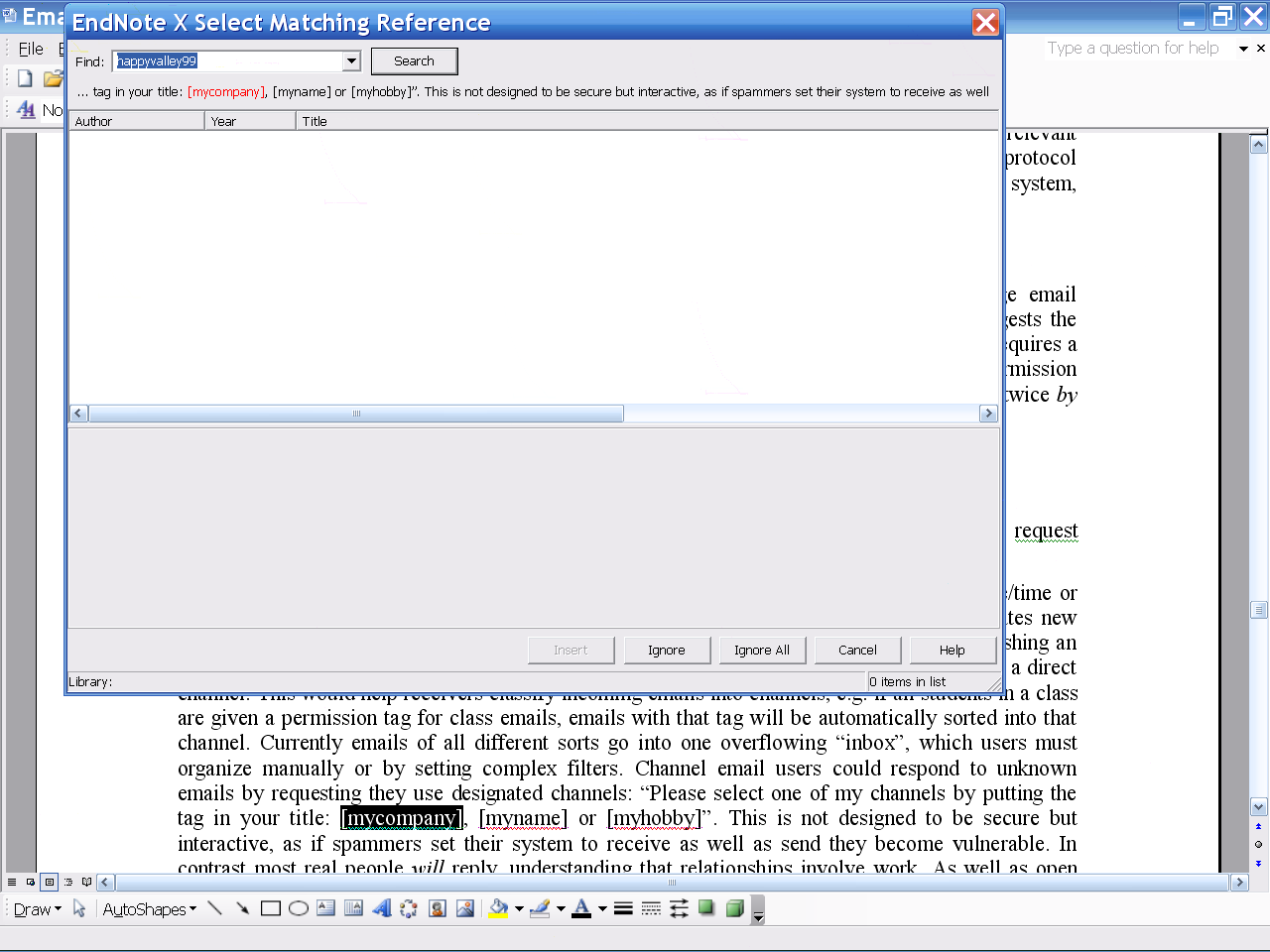
The problem of computers taking over what they do not understand is embodied in the story of the sorcerer who left his apprentice in charge of his laboratory. Thinking he knew what he was doing, the apprentice started to cast spells, but they soon got out of hand and only the sorcerer’s return prevented total disaster. When smart software, like that apprentice, acts on its own it causes things to get out of control and people have to pick up the pieces.
As software evolves it can get things wrong more. For example, Endnote software manages citations in documents like this one by embedding links to a reference database. Endnote Version X ran itself whenever I opened the document, and if it found a problem took the focus from whatever I was doing to let me know right away (Figure 4.8). It used square brackets for citations, so assumed any square brackets in the document were for it, as little children assume any words spoken are to them. After I had told it every time to ignore some [ ] brackets I had in the document, it then closed, dropping the cursor at whatever point it was and leaving me to find my own way back to where I was when it had interrupted.
I could not turn this activation off, so editing my document on the computer at work meant that EndNote could not find its citation database. It complained, then handled the problem by clearing all the reference generating embedded links in the document! If I had carried on without noticing, all the citations would have had to be later re-entered. Yet if you wanted to clear the Endnote links, as when publishing the document, it had to be done manually. Selfish software comes with everything but an off button. It takes no advice and preemptively changes your data without asking. I fixed the problem by uninstalling Endnote and installing Zotero. Cooper compares smart software to a dancing bear: we clap not because it dances well, but because we are amazed it can dance at all (Cooper, 1999). We need to stop clapping.

For many reasons, people should control computers, not the reverse. Firstly, computers manage vast amounts of data with ease but handle context changes poorly (Whitworth, 2008), so smart computing invariably needs a human minder. Secondly, computers are not accountable for what they do, as they have no “self” to bear any loss. If people are accountable for what computers do, they need control over computer choices. Thirdly, people will always resist computer domination. Software designers who underestimate the importance of human choice invite a grass-roots rebellion. An Internet movement against software arrogance is not inconceivable.
Today, too many people are at war with their software: removing things they did not want added, resetting changes they did not want changed, closing windows they did not want opened and blocking e-mails they did not want to receive. User weapons in this war, such as third party blockers, cleaners, filters and tweakers, are the most frequent Internet download site accesses. Their main aim is to put users back in charge of the computing estate they paid for. If software declares war on users, it will not win. If the Internet becomes a battlefield, no-one will go there. The solution is for software to give choices, not take them, i.e. polite computing.
The future of computing lies not in it becoming so clever that people are obsolete but in a human-computer combination that performs better than people or computers alone. The runaway IT successes of the last decade (cell-phones, Internet, e-mail, chat, bulletin boards etc.) all support people rather than supplant them. As computers develop this co-participant role, politeness is a critical success factor.